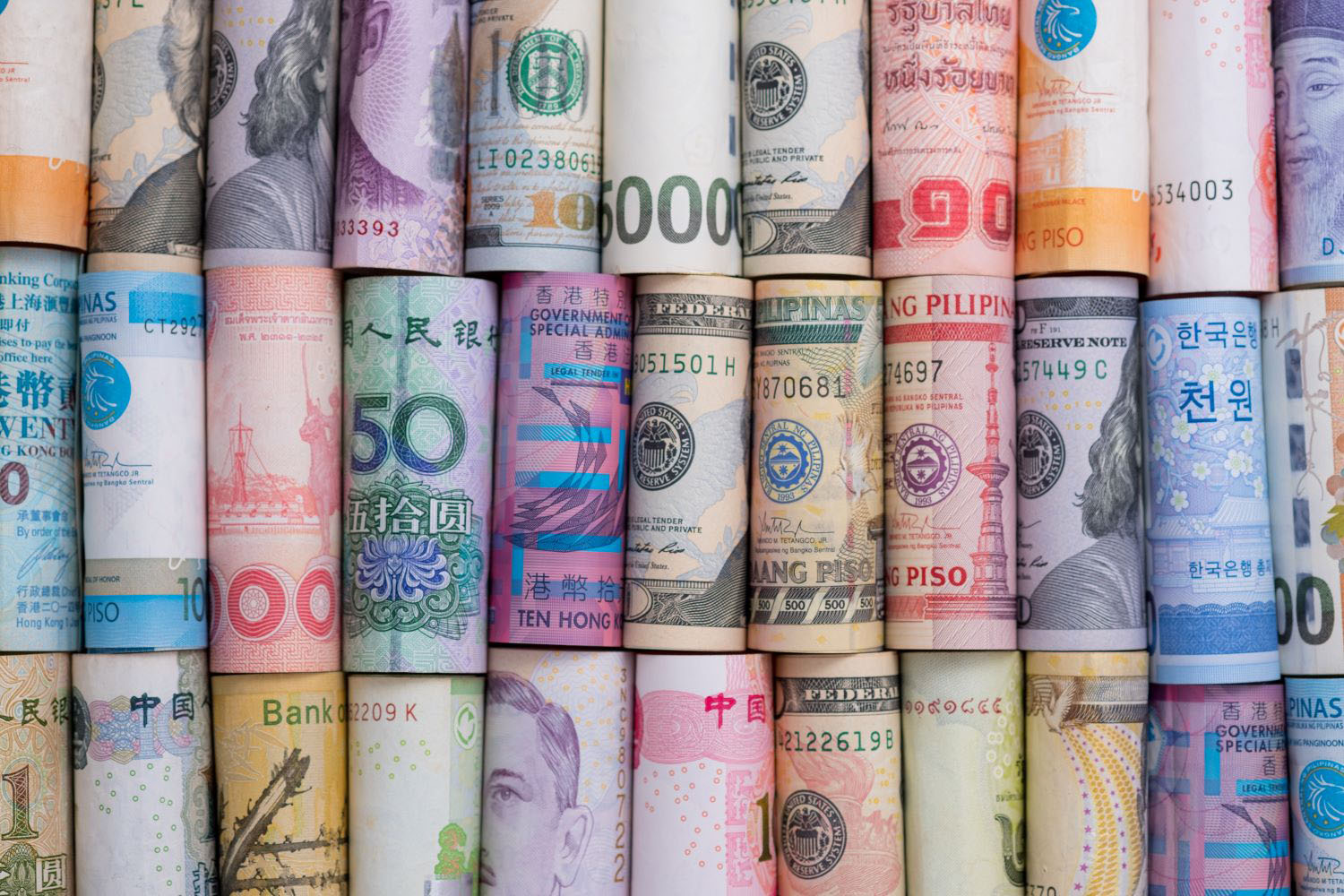We have both experienced at first hand the importance of our membership of the European Union for Britain’s ability to promote our global policies. We are alarmed by the possibility that a narrow majority of the British people might choose to destroy that by voting to leave the European Union, undermining our ability to secure our foreign, economic, and international development interests. This would be harmful not only for Britain, but also for the rest of the world as our values and ideas lose their potency and our influence declines.
One of us was a career diplomat, a British Ambassador or High Commissioner in five countries; the other was a senior official in the Treasury, a private secretary to the Prime Minister, and in the Department for International Development. Between us we can speak with some authority about the role of the EU in a wide range of international and economic policy issues over a period of time that spans generations.
Brian: When I was the British Ambassador to Poland during the Cold War, I had the task of delivering a rebuke on behalf of the whole EEC (as it then was) to the then communist government in Warsaw over a flagrant breach of the human rights of Polish dissidents. This was the first time the Poles had received a message from the whole of the EEC. It made a huge and salutary impression and raised the price to the Polish government of repeating such misbehaviour thereafter. Had the message been delivered solely on behalf of the British government, it would have made virtually no impact. Similar constructive international activity by EU ambassadors around the world takes place every day, mostly unreported but effective in ways that action by states on their own could never match. And now free Poland is herself our weighty partner in the EU.
Owen: I have had the honour of representing the United Kingdom in many international development and economic forums, from G-20 meetings to establishing international institutions to promote more open government. In these situations, speaking with one coordinated voice, European governments are able to promote European values and priorities in a way that would be impossible if each government pursued its goals separately. At one crucial meeting about the future of the World Bank, I set out a joint European position, which we had agreed in a preparatory meeting. The US delegate then asked, only half-jokingly, whether we could cut the rest of the meeting short, since between us the Europeans held a majority of the votes round the table.
The European Union is a shining example of international cooperation which inspires the rest of the world.
The European Union is a unique and inspiring association, enabling 28 free nations to act in unison. We are more than half a billion people—7.3 percent of the world population—generating nearly a quarter of the world’s economic output. Together we have global clout in negotiating trade deals, playing a powerful role in international diplomacy, and promoting human rights, sustainable prosperity, and social justice both within and outside the Union. The EU does more than preserve peace among its once bloodily warring members (it won the Nobel Peace Prize in 2012): it actively demonstrates friendship and shared loyalties, with free movement of its people right across its 4.3 million square kilometres. Millions of us feel at home throughout Europe in a way that’s different from how we feel visiting the United States, however strong our attachment to our American friends.
Yet this extraordinary achievement in multinational collaboration in the common interest has been achieved without sacrificing our national identities. France, Germany, Austria, Sweden, Britain, Cyprus—we have all retained our distinctive cultures and personalities, our languages and cuisines, our flags and anthems, our separate memberships of the United Nations, and our football teams, while simultaneously acting as constituent parts of a global superpower—and the biggest single market in the world. This superpower level of influence is achieved without the need for an army, a seat on the Security Council, or even a common language.
The European Union is not a confederation, nor a federation, nor a single sovereign state, although it has some features of all those things. It is a unique and unprecedented model of intensive cooperation and voluntary limited pooling of sovereignties, a shining example of international cooperation which inspires the rest of the world, despite its inevitable ups and downs. It is a model of rules-based cooperation which is increasingly needed in a world of interconnected and interdependent nation states to build and sustain shared, sustainable prosperity.
Of course the EU has not overcome all our contemporary challenges: conflict in the Middle East and the influx of refugees, global and national inequality with stagnating incomes for working people, climate change, over-mighty multinational corporations. But nor have individual national governments solved these problems, and these are all challenges that need more, not less, international cooperation. Reconciliation of different interests within and between countries is always difficult and often time-consuming; but these are the processes that preserve peace and protect vulnerable people from the powerful. Because of this, the EU, for all its defects and failings, excites the loyalty and enthusiasm of millions of people across our rich continent, including in Britain. The expansion of the EU from six countries to 28 has been the world’s most successful programme to spread the principles of liberty, democracy, respect for human rights and fundamental freedoms, the rule of law, and economic prosperity. EU accession has been far more effective than any programme of foreign financial aid or exercise of military power to promote democracy, freedom and prosperity. As active and enthusiastic members of the larger Union, we can achieve far more than we ever could alone.
Our daily engagement with our European friends has largely been collaborative rather than competitive.
For too long, British politicians have talked of fighting battles with the EU, painting a picture of recalcitrant followers rather than friends, allies, and equals. But we know from our personal day-to-day participation in international affairs that our daily engagement with our European friends has largely been constructive and collaborative participation, collegiate rather than competitive.
Amartya Sen, a Nobel Economics Prize winner, attacked a ‘solitarist’ approach to human identity, which sees human beings as members of only one group. He regards this as both morally undesirable and descriptively wrong. Each of us has myriad identities, and—as Sen argued—we can and do choose among them in each situation, emphasizing those characteristics we share rather than those we do not. Sen warns that that recognising only one identity is a key step on the road to oppression and to fascism. A person can simultaneously be a Londoner, English, British, European, Jewish, a father or a son, mother or sister, a member of a church, a member of a political party, a civil servant, a runner, a Barcelona supporter, and a lover of Wagner. As loyal Britons, we are entitled and proud also to be good Europeans, rejoicing in all the things we have in common with our friends all across Europe. We all voluntarily subject ourselves to shared decision-making in all these identities, whether in the family, workplace, parish, club, city, nation or internationally: those choices to collaborate with others do not reduce our sovereignty; they express it.
Concern about immigration threatens to sweep us out of the European Union for the worst of all reasons. Immigration confers a significant overall benefit on our economy, actually creating more jobs and higher wages for both migrants and native Britons. Large parts of our economy need immigrants and would collapse without them, including most obviously the NHS, the care sector and the railways. While rapid immigration obviously causes strains in many areas by putting increasing pressures on services such as housing, schools, hospitals and GPs’ surgeries, the solutions are to expand provision of those services where they are needed, paid for by the fiscal contribution that immigrants make. To the extent that this hasn’t happened, the responsibility for the failure rests on local and especially central government, not on the immigrants, the vast majority of whom come here to work and to contribute to our overall prosperity. The EU is not the cause of these problems: since records began we have had more migrants from outside the EU than from within it. Nor is there any possibility that other European countries will allow Britain to remain part of the single market while rejecting free movement of people, which is one of the central principles on which it is built.
We should recognise membership of this unique association as a right and a privilege, not a grudging concession.
We are shamed by the Prime Minister’s blinkered rejection of the noble aim of ‘ever closer union.’ We should recognise our continuing membership of this unique association of fellow-Europeans as a right and a privilege, not a grudging concession; as something to cheer about, not a burden to resent. We should reject those who want to give it up, for no conceivable gain and at immense risk, as myopic, lacking in both imagination and patriotism. And we have a moral and practical duty to consider the likely effects of our actions on the rest of our continent and its interests, not just those of the UK.
Across much of the developing world—the fast growing markets of emerging economies and our future allies and markets for our firms—Britain is known in part for our outstanding support for developing countries. We promote human rights, economic prosperity and sustainable growth, and we play an outsize role in building global cooperation to solve shared problems. We do this in part through our membership of the European Union, a partnership which amplifies our voice and spreads European values.
In this referendum campaign there is a legitimate place for the so-called ‘project fear.’ It’s plainly right to warn someone sleepwalking towards a precipice of the awful consequences of continuing. But there’s a far bigger place for the positive enthusiasm project. We should boast of our European as well as our British (and our many other) loyalties, and trumpet the contribution our country has made towards the achievement of the great European dream. Let’s go on making it.
Brian and Owen Barder
June 2016
Sir Brian Barder is a retired diplomat who was British Ambassador to Ethiopia, Poland and Benin, and British High Commissioner in Nigeria and Australia. Owen Barder, his son, is Vice President and Europe Director of the Center for Global Development and is a visiting professor of practice at the London School of Economics. He was formerly Private Secretary to two Chancellors of the Exchequer and to the Prime Minister.
Rights & Permissions
You may use and disseminate CGD’s publications under these conditions.





